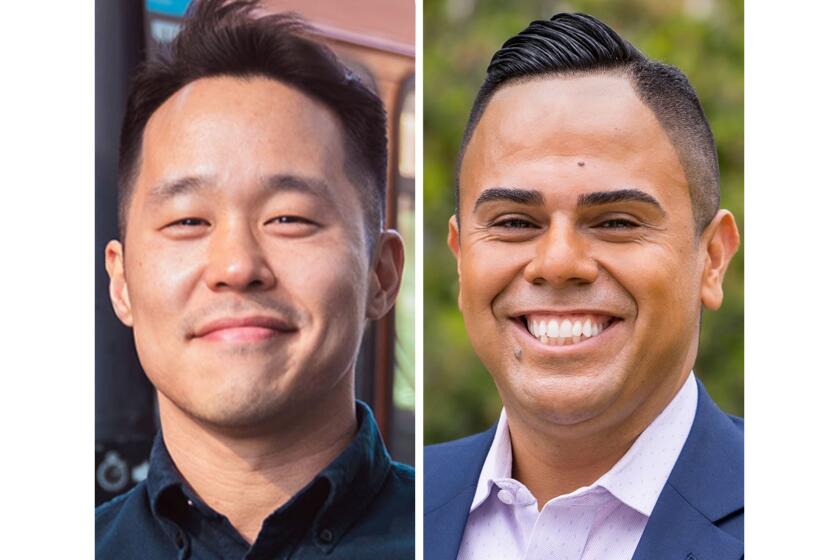House Speaker Firm on 9/11 Panel’s Deadline
House Speaker J. Dennis Hastert (R-Ill.) said Wednesday that he would block legislation to extend the deadline for a commission investigating the Sept. 11 terrorist attacks -- a serious setback to the panel, which also on Wednesday expressed disappointment over limits on its access to President Bush and other administration officials.
Hastert refused to allow a bill extending the commission’s deadline to be introduced in the House, angering Democrats on Capitol Hill. Bush had endorsed the idea of giving the panel two extra months -- until July 26 -- to complete its investigation.
A spokesman for Hastert said the speaker opposed postponing completion of the report partly out of concern that it would push the release of the commission’s findings -- and any damaging disclosures -- into the heat of the presidential campaign. The panel’s mandate calls for it to complete its work by May 27.
“The speaker believes strongly that we need that report as soon as possible,” said John Feehery, a spokesman for Hastert.
“He is also worried it will become a political football and that any recommendations [made by the commission] will get lost in the shuffle.”
The showdown with Hastert is the latest in a series of political tussles for the bipartisan commission, which is responsible for producing a comprehensive report on government failures leading up to the Sept. 11. attacks.The panel has complained repeatedly that its progress has been impeded by the failures of various agencies to turn over documents in a timely manner, as well as by protracted negotiations with the White House over access to highly classified briefings the president received before Sept. 11.
Without an extension, commission officials said, the panel probably would have to cancel hearings it had planned to conduct, and that the quality of its report would be compromised.
“We will suffer if we are not allowed some reasonable additional time to conclude,” said Richard Ben-Veniste, a Democrat on the panel.
Ben-Veniste and others said they hoped that the Senate would pass an extension, which could put pressure on House Republicans to give ground.
Because the commission was created and funded by Congress, both chambers must pass legislation to extend its deadline.
Some speculated Wednesday that the White House was behind Hastert’s decision.
Feehery denied that was the case, saying: “We’ve gotten plenty of signals that they want us to extend it, but the speaker just doesn’t believe this is a good idea.”
Erin Healy, a White House spokeswoman, said the administration continued to support an extension. “We want the commission to have the time they need to complete their work,” she said.
The commission also put out a statement Wednesday pointing to new difficulties in its efforts to interview Bush and other White House officials.
Bush and Vice President Dick Cheney have agreed to meet privately with the co-chairmen of the commission, but are not willing to meet with all 10 members of the panel.
“We hope the president and the vice president will reconsider,” the co-chairmen, former Republican New Jersey Gov. Thomas H. Kean and former Democratic Indiana Rep. Lee Hamilton, said in the statement.
President Clinton and former Vice President Al Gore have agreed to sit down with the full commission.
Asked why Bush and Cheney objected to meeting with the full commission, Healy said: “There are lots of ways in which they can share information, and we felt this was the best way to do that. We’re confident the chair and the vice chair can share the information with the rest of the commission.”
Previously, the administration had restricted access to classified White House briefing materials to a few members of the panel.
The commission also said Wednesday that national security advisor Condoleezza Rice, who recently met privately with the commission, had declined an invitation to testify in public. “We are disappointed by this decision,” Kean and Hamilton said.
CIA Director George J. Tenet, Defense Secretary Donald H. Rumsfeld and Secretary of State Colin L. Powell have agreed to testify publicly.
More to Read
Get the L.A. Times Politics newsletter
Deeply reported insights into legislation, politics and policy from Sacramento, Washington and beyond. In your inbox three times per week.
You may occasionally receive promotional content from the Los Angeles Times.










